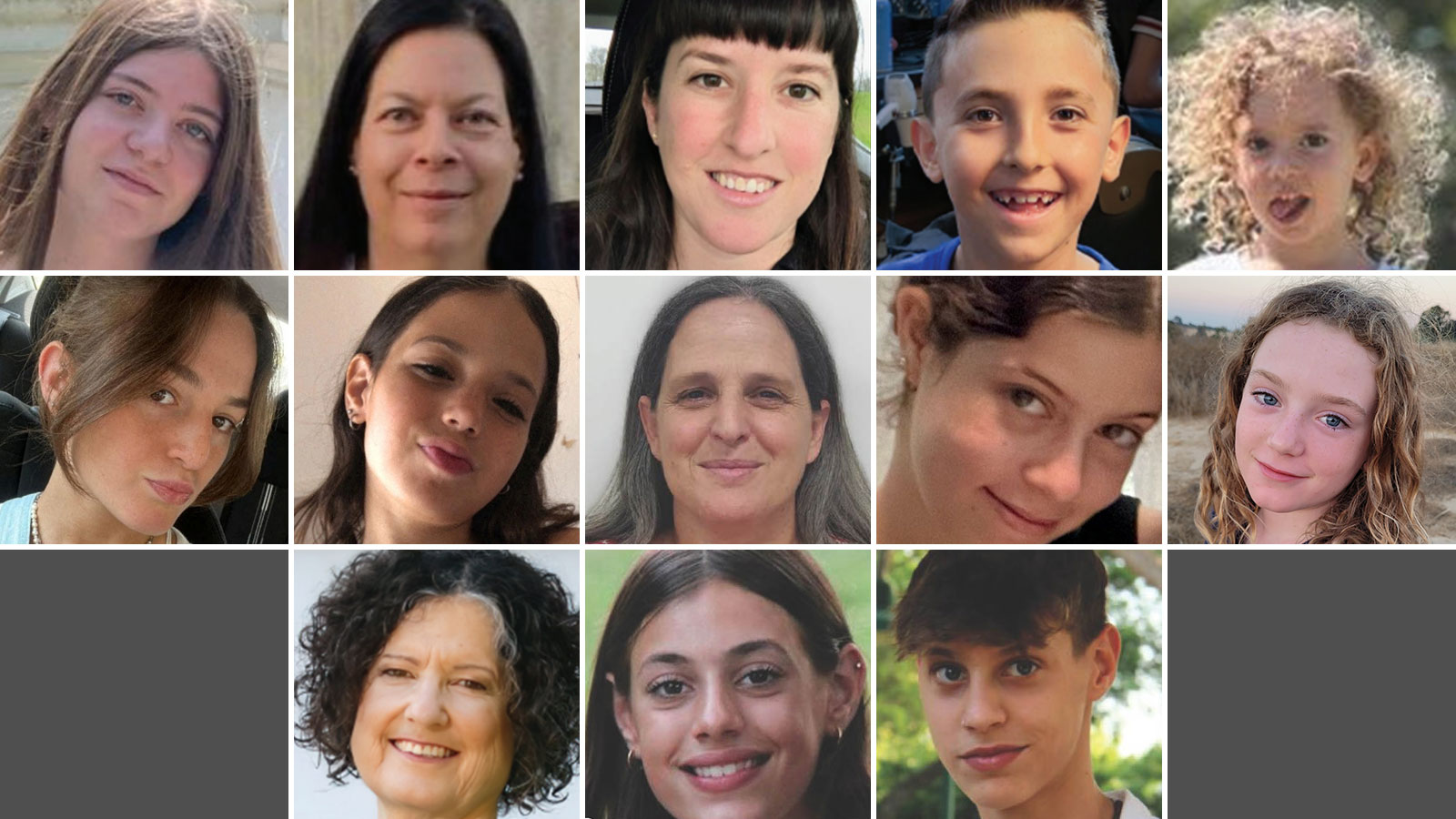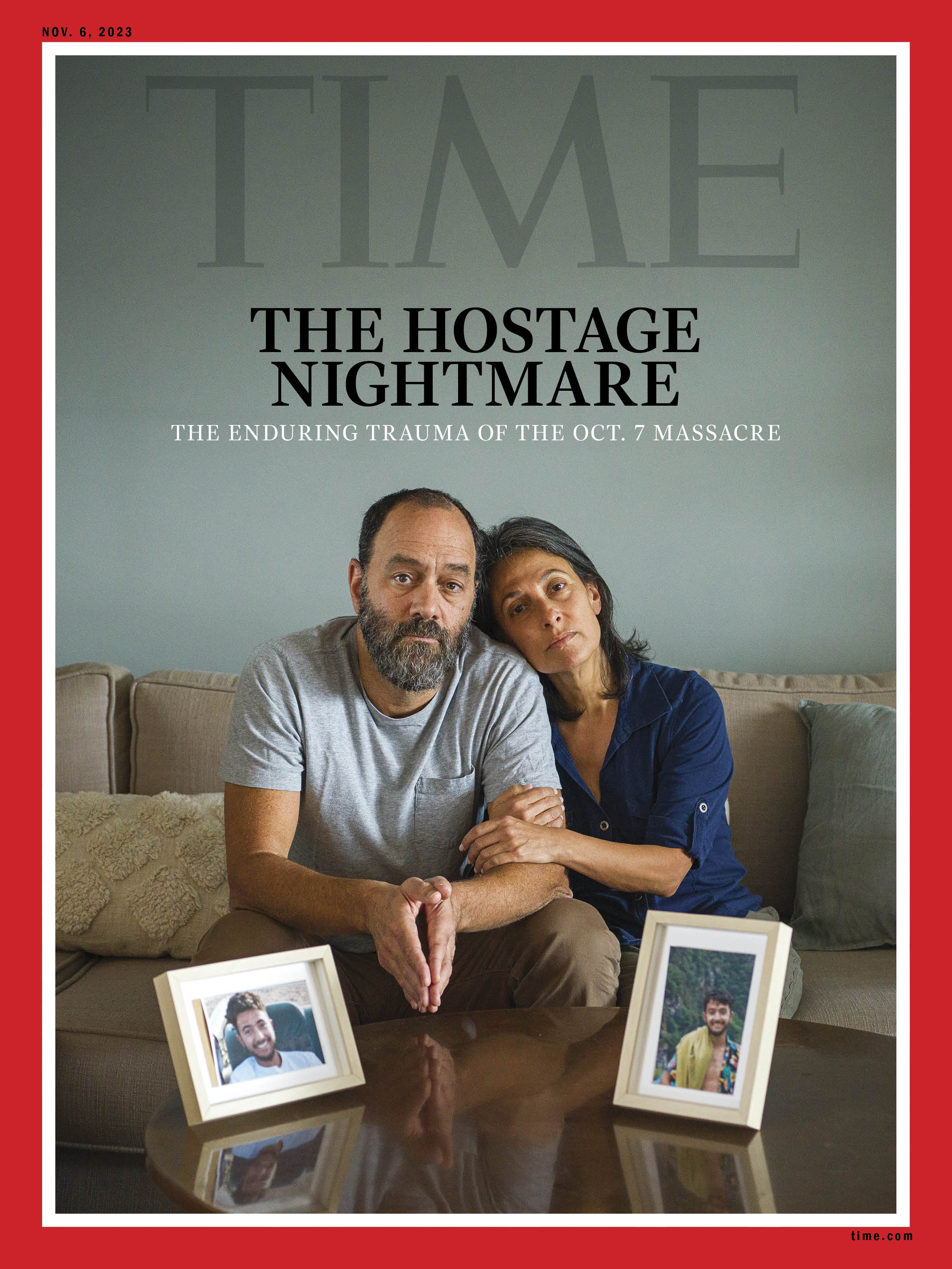Gaza Hostage Situation: The Nightmare Continues For Families

Table of Contents
The Human Cost of the Gaza Hostage Situation
The Gaza Hostage Situation has exacted a terrible human toll, leaving countless families shattered and struggling to cope with unimaginable loss and uncertainty. The sheer scale of suffering demands immediate and sustained global attention.
Families Separated and Traumatized
The conflict has brutally torn families apart, leaving many with missing loved ones and facing the emotional toll of prolonged uncertainty. The psychological impact is profound and far-reaching.
- Stories of separated families: Reports detail heartbreaking accounts of families desperately searching for news of loved ones, often with limited or no communication channels. One mother described the agonizing wait for news of her three children, last seen fleeing their home during a bombing raid. Another family recounts their desperate attempts to cross conflict zones to reach missing relatives in neighboring areas.
- Psychological impact on children and adults: The psychological trauma experienced by both children and adults is immense. Children witness violence, loss, and separation, leading to severe emotional distress, anxiety, and PTSD. Adults face the crushing weight of uncertainty, grief, and the responsibility of protecting their families amidst escalating violence.
- Lack of communication and information: The lack of reliable information exacerbates the trauma. The inability to contact missing loved ones and the constant bombardment of conflicting news reports fuel anxiety and despair.
- The desperate search for missing relatives: Families are tirelessly searching for missing relatives, often facing significant obstacles, including limited access to information and dangerous conditions. Many rely on social media and limited news channels for updates, adding to the stress and misinformation.
The Struggle for Basic Necessities
The ongoing conflict in Gaza severely limits access to essential resources, exacerbating the suffering of families already grappling with the Gaza Hostage Situation. The lack of basic necessities intensifies the trauma and hinders recovery.
- Depiction of shortages and humanitarian aid challenges: Food, water, medicine, and shelter are in critically short supply, with humanitarian aid struggling to reach those most in need due to ongoing conflict and infrastructural damage.
- Impact on vulnerable populations: Children, the elderly, and those with pre-existing medical conditions are disproportionately affected by the shortages, facing increased risk of malnutrition, dehydration, and preventable diseases.
- Breakdown of essential services: Essential services, including electricity, sanitation, and healthcare, are severely disrupted, further compounding the challenges faced by affected families. Hospitals are often overwhelmed, lacking essential supplies and personnel.
- Difficulties in accessing medical care: Access to medical care is severely hampered by the conflict, with injuries and illnesses often going untreated due to limited access to healthcare facilities and essential medical supplies.
International Efforts and the Path to Resolution
The international community has responded to the Gaza Hostage Situation with condemnation and diplomatic initiatives, but a lasting resolution remains elusive. The complexity of the situation poses significant challenges.
Global Condemnation and Diplomatic Initiatives
Numerous countries and international organizations have issued strong statements condemning the hostage situation and calling for the immediate and unconditional release of all hostages. Diplomatic efforts are underway to facilitate negotiations and secure their release.
- Statements from international bodies: The UN Security Council, along with other international bodies, has repeatedly condemned the actions and called for a peaceful resolution.
- Diplomatic efforts underway: Several countries are engaged in diplomatic efforts, working with various parties to create conditions for negotiations and secure a peaceful resolution.
- Sanctions and other measures: Some countries have imposed sanctions and other measures aimed at pressuring parties involved in the conflict to facilitate the release of hostages and de-escalate the situation.
- Role of humanitarian organizations: Humanitarian organizations play a crucial role in providing essential aid and support to affected families and communities, navigating dangerous conditions to deliver aid where it is needed.
Challenges in Negotiating a Release
Securing the release of hostages presents significant challenges due to the complexity of the situation, including the involvement of multiple actors and conflicting interests.
- Obstacles hindering negotiations: Lack of trust between parties, differing agendas, and security concerns often hinder negotiation efforts.
- Security concerns and potential risks: The volatile security situation in Gaza presents significant risks for negotiators and aid workers attempting to secure the release of hostages.
- Importance of humanitarian corridors and safe passage: Establishing humanitarian corridors and ensuring safe passage for the release of hostages is crucial for the success of negotiation efforts.
- The need for international collaboration: International collaboration and coordination are vital to effectively address the complex challenges associated with the Gaza Hostage Situation and secure a lasting peace.
The Long-Term Impact of the Gaza Hostage Situation
The Gaza Hostage Situation will leave a lasting scar on the affected families and communities, requiring extensive support and long-term rebuilding efforts.
Psychological Scars and Trauma
The psychological trauma experienced by families and communities will have long-term consequences, requiring comprehensive mental health support.
- Post-traumatic stress disorder (PTSD) and other mental health issues: The trauma of the conflict, including witnessing violence, loss, and separation, is likely to lead to high rates of PTSD, depression, and anxiety among survivors.
- Need for psychological counseling and support services: Providing readily accessible psychological counseling and support services is crucial for the long-term mental health and well-being of affected families.
- Long-term effects on children's development: Exposure to trauma during childhood can significantly impact a child’s development, leading to long-term behavioral, emotional, and cognitive problems.
- Community-based trauma recovery initiatives: Community-based trauma recovery initiatives are essential to address the collective trauma and promote healing within affected communities.
Reconstruction and Rebuilding
The physical and economic devastation caused by the conflict will require massive long-term reconstruction efforts.
- Extent of damage to infrastructure and homes: The conflict has caused significant damage to infrastructure and homes, leaving many families without adequate shelter.
- Economic consequences and job losses: The conflict has led to widespread economic disruption, job losses, and poverty, exacerbating the challenges faced by affected communities.
- International aid and reconstruction efforts: Significant international aid and cooperation are needed to support reconstruction efforts and ensure the long-term recovery of the affected areas.
- Rebuilding a future for the affected communities: Rebuilding a future for the affected communities requires a comprehensive and sustainable approach, addressing both physical and economic needs and promoting peace and stability.
Conclusion
The Gaza Hostage Situation represents a profound humanitarian crisis, inflicting immense suffering on families and communities. The urgent need for a peaceful resolution, and the safe return of all hostages, cannot be overstated. International efforts must be intensified to address the immediate humanitarian needs, secure the release of all hostages, and tackle the long-term consequences of this tragic event. We must continue to advocate for the families impacted by the Gaza Hostage Situation and demand a swift and decisive end to this ongoing nightmare. Learn more about the ongoing crisis and how you can help alleviate the suffering caused by the Gaza Hostage Situation. Your support can make a difference.

Featured Posts
-
 The Unending Nightmare Gaza Hostage Situation And Its Impact On Families
May 13, 2025
The Unending Nightmare Gaza Hostage Situation And Its Impact On Families
May 13, 2025 -
 Nova Zbirka Romski Ba Ki E Dostapna
May 13, 2025
Nova Zbirka Romski Ba Ki E Dostapna
May 13, 2025 -
 Leonardo Di Caprios Unexpected Met Gala Guest Vittoria Ceretti
May 13, 2025
Leonardo Di Caprios Unexpected Met Gala Guest Vittoria Ceretti
May 13, 2025 -
 Islanders Win Nhl Draft Lottery Analysis And Impact Of The No 1 Pick
May 13, 2025
Islanders Win Nhl Draft Lottery Analysis And Impact Of The No 1 Pick
May 13, 2025 -
 Unlocking The Mysteries Of The Da Vinci Code
May 13, 2025
Unlocking The Mysteries Of The Da Vinci Code
May 13, 2025
